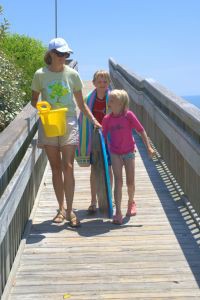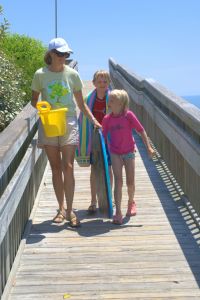 In a way, summer vacation reminds me of giving birth. When it’s over, we forget the difficult parts and look forward to the next one.
In a way, summer vacation reminds me of giving birth. When it’s over, we forget the difficult parts and look forward to the next one.
The next time we take a family vacation, hoping our children will get along during a long car ride, or walk quietly beside us on a family outing, we can expect that there will be complaining, whining, yelling, crying, hitting and fighting. They might promise they’ll cooperate, but these incidents will still happen. If we give them incentives or promise them rewards, these incidents will still happen. If we threaten them with punishments or consequences, these incidents will still happen.
I hate summer, I hate how hot the weather is, at least I had the great idea of calling hvac Columbia SC company to safe my family from how hot it was at home. The only way we could feel better was going to the pool or the beach, but you can’t stay there all day and night.
This is because children are children: They are not yet mature enough to always control their impulses and behavior. This is not a matter of age, but a matter of how far along they are on the road to maturation. The connections between the different structures of children’s brains are still in a stage of development.
This means that it’s not realistic to expect children to think and respond in ways that require more maturity than they are capable of.
For children to wait patiently when they want to go, walk quietly when they want to jump and shout, share when they want something for themselves or cooperate when there’s another impulse driving them, they need a fair level of ability to mix conflicting signals, thoughts, ideas and impulses together at the same time in order to find a tempered response. This means a child might have an impulse to hit his brother, but at the same he can remember that “we don’t hurt each other.”
When we understand that children can’t yet temper their impulses, we can take care of them without losing our own ability to mix our conflicting impulses and feelings: On the one hand, we feel angry and want to yell, but on the other hand, we want to respond calmly so we don’t hurt those we love!
Here are three ideas that can help transform a family vacation into a more satisfying experience:
- This is a wonderful time to deepen attachments with our children and satiate their hunger for connection with us. Activities that make it possible to have quiet time together for reflection and conversation strengthen and deepen relationships.
- When children are free from the structure of school, they often have an accumulation of frustration and other strong feelings that are trapped inside and have not yet found expression. Children need a lot of room for their big and noisy feelings, and when we provide them with generous amounts of warm connection with us, we help these feelings come out — sometimes together with a sea of tears that were stuck inside. After this, children are calmer and easier to direct and take care of. Children don’t intend to behave poorly or aggressively: Their self-control is still undeveloped. We want to remember our own good intentions, and stay in control of our impulses so we can lead intuitively with maturity, creativity and compassion.
- We can give our children little scripts to guide them through different situations. Just as the director of a play gives the actors a script and directs their acting, we can give simple, positive instructions to children before entering into a situation and then guide them as needed. For example, before going on a long car ride, visiting the home of relatives or going to a special attraction, we can explain expectations: “When we go into the museum, we’re going to walk and talk quietly. I’ll show you which things you can touch and which things are not for touching.” Scripting is a temporary measure that works well only in the context of an active, working attachment.
Summer vacation will have both terrible and wonderful moments. When we know that both will happen, and we can lead our children by responding thoughtfully to the circumstances that present themselves to us, we can look forward to the season!

